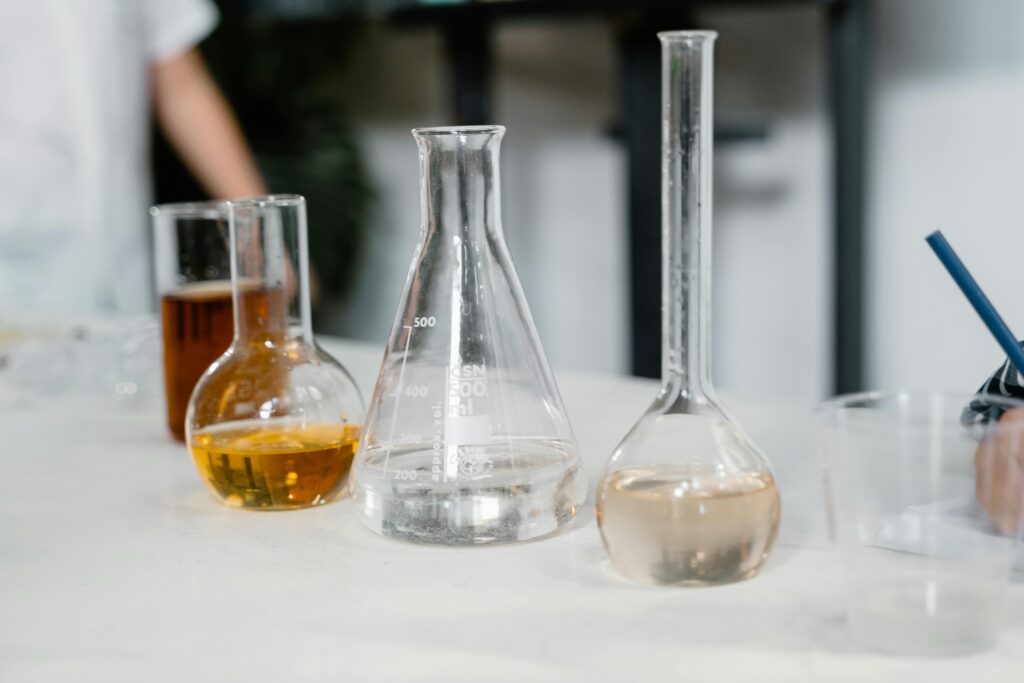Water Testing
James Hutton Institute Scientific Services is equipped to carry out chemical and biological analyses of water, wastewater, natural water, brines and produced waters from households, industry and the environment.
Techniques include pH, nutrients and contaminants to help assess water quality and ensure compliance with environmental standards, crucial for public health and ecosystem protection.
Water Testing Services we offer
Metal Analysis:
ICP-OES (Inductively Coupled Plasma Optical Emission Spectroscopy): Used for detecting metals from macro to trace levels. This is a highly sensitive technique capable of analyzing multiple elements simultaneously.
ICP-MS (Inductively Coupled Plasma Mass Spectrometry): Offers even more sensitive detection for trace metals.
Chromium VI: A specific concern in environmental testing due to its toxicity.
Bacterial and Microbiological Testing:
Culturing and Phenotypic Analysis: These traditional methods involve growing bacterial cultures and identifying them based on their physical characteristics.
Most Probable Number (MPN): A statistical method used to estimate the concentration of viable microorganisms in a sample.
Quantitative PCR (Polymerase Chain Reaction): A molecular technique that amplifies DNA to identify specific bacterial DNA markers. This method is more sensitive and faster than traditional culturing techniques, providing results with higher accuracy.
We stand out from other companies in the range of techniques we can integrate and the collaborative approach our scientists take.
Andy Kindness, Science Group Leader



Chromatographic Techniques:
GC-MS (Gas Chromatography-Mass Spectrometry): A powerful method used to analyze volatile organic compounds (VOCs) and semi-volatile compounds.
LC-MS/MS (Liquid Chromatography-Mass Spectrometry/Mass Spectrometry): Used for the analysis of more complex or non-volatile organic compounds, including pesticides, pharmaceuticals, and other contaminants.
Standard Water Testing – pH:
Conductivity: A quick indication of dissolved solids water, which can provide information on the water’s overall quality.
Chloride, Sulphate, Nitrate, Nitrite: Key indicators of the water’s ion balance, and can also serve as indirect indicators of contamination (e.g., from industrial discharges, fertilizers).
TOC (Total Organic Carbon): Measures the amount of organic matter in water, which can provide insight into potential for microbial growth or contamination.
TN (Total Nitrogen): An important parameter for assessing nutrient levels in water, particularly for understanding eutrophication risks.
Ammonium and Phosphate: Commonly tested in wastewater and natural water bodies for nutrient management and pollution monitoring.
Free Cyanide: Cyanide can be highly toxic, and its presence in water is a key concern in industrial wastewater treatment.
Wastewater Testing:
COD (Chemical Oxygen Demand): Measures the amount of oxygen required to oxidize organic material in the water. It is an important parameter for wastewater treatment.
BOD (Biochemical Oxygen Demand): Measures the oxygen consumed by microorganisms in the water used to assess the pollution load.
Suspended and Dissolved Solids: Indicates the level of particulates and dissolved substances in wastewater.
Isotope Testing:
Light isotopes: Carbon isotopes of dissolved inorganic carbon (DIC) in both fresh and saline waters, and Carbon isotopes of dissolved organic carbon (DOC) in fresh waters.
Strontium isotopes: Uses 87Sr/86Sr for monitoring produced waters and investigating water allocation and connectivity.
To learn more about this topic , visit the Catchments and Water page.
